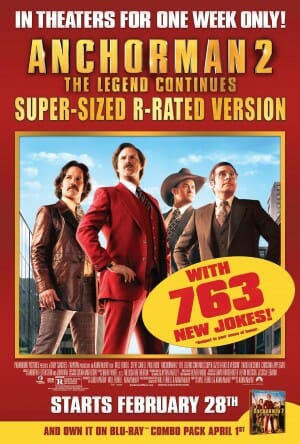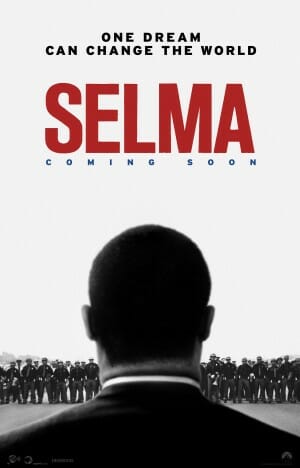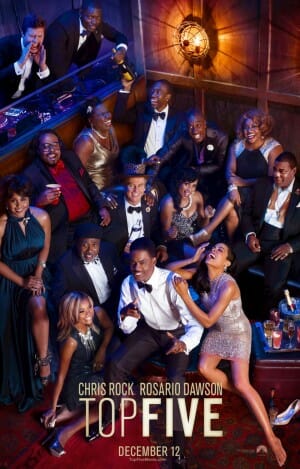Established in the earliest days of the American film industry, Paramount Pictures traces its lineage all the way back to 1912 and the founding of the Famous Players Film Company, which was one of three companies that would merge in 1916 and eventually become Paramount. In recent years, many of its most recognizable releases have been big-budget, mass appeal franchises including Star Trek, Transformers, and Mission Impossible.
If one only looks at Paramount Pictures’ most recent crop of films, it may appear that the studio is not particularly fond of taking risks, but that hasn’t always been the case. Starting in the mid-nineties, Paramount released a string of films that were either LGBT-themed or LGBT-inclusive, including Home for the Holidays (1995), Clueless (1995), The Brady Bunch Movie (1995), Brain Candy (1996), Kiss Me Guido (1997), Election (1999), The Talented Mister Ripley (1999), and The Next Best Thing (2000).
In 1997, the studio partnered with Scott Rudin Productions to release the mass-appeal, gay-themed comedy In and Out, which garnered a great deal of publicity for a kiss between lead Kevin Kline and love interest Tom Selleck and became a box office hit. In fact, In and Out along with fellow Paramount releases Mister Ripley and The Hours (2002) are three of the top 10 highest grossing gay or lesbian-themed films in the United States.
In 2014, Paramount Pictures released 13 films, of which 3 included appearances by LGBT people, amounting to 23%. One of these films passed the Vito Russo Test.
ANCHORMAN 2: THE LEGEND CONTINUES (SUPER-SIZED VERSION)
Widest theatrical release: 1317 theaters
Though GLAAD doesn't normally count re-releases of films in its yearly tally of films, the extended version of Anchorman 2 added more than 20 additional minutes of material. Among the new scenes was one of newsman Ron Burgundy and his three friends talking to an openly gay staff member of their new office, and their general befuddlement at the fact that he is out and proud. All of the scene's jokes hinge on the main characters' ignorance or idiocy rather than the gay man's sexual orientation, though he exists solely to set up jokes for others. He obviously has no bearing on the plot, considering the entire scene was cut from the original theatrical release. A more problematic earlier scene also shows Ron telling his young son to avoid the "he-she's down in the Bowery." It goes to show that while many comedies are growing smarter with their gay jokes, there are still plenty of offensive transphobic jokes making it into films.
![Selma, Paramount Selma, Paramount]() SELMA
SELMA
Widest theatrical release: 2235 theaters
Interestingly, Selma is actually the second historically-based drama about an important African American figure that features a depiction of a real-world LGBT person released last year. The first was the James Brown biopic Get on Up, that included two scenes with singer Little Richard. Much less widely known was Bayard Rustin, the openly gay, black man who was a major figure in both the Civil Rights Movement and the career of Martin Luther King, Jr. Selma examines the 1965 marches between Selma and Montgomery, AL. to demand voting rights, which were led by Dr. King. Rustin has a very minor role in the film (he didn't take part in the actual march), but he is at least identified by name at one point. Sadly, the vast majority of viewers probably didn't know the significance of that name, or that Rustin really deserves a biopic of his own.
![Top Five, Paramount Top Five, Paramount]() TOP FIVE
TOP FIVE
Widest theatrical release: 1426 theaters
It's rare that a mainstream Hollywood comedy displays significant self-awareness, but Chris Rock's Top Five practically built an entire movie out of it. Rock both wrote and directed this film about a comedian struggling to control his cultural identity who is interviewed over a long evening by a critical reporter. The film tackles issues ranging from identity politics to representations of minorities in the media, with Rock's character at one point yelling "It's never just a movie!" when discussing the racial subtext in Planet of the Apes. That makes it all the more disappointing when the film drops in several scenes that carry some undeniably homophobic subtext of their own just a few minutes later. Andre and Chelsea (Rock and Rosario Dawson's characters) stop by a hotel lobby, only to catch Chelsea's boyfriend and his male friend apparently carrying on an affair. After she storms out, Andre asks her if there were any signs that her boyfriend might not be straight, and Chelsea begins angrily recalling how her boyfriend had become increasingly interested in being anally pleasured by her, which is accompanied by a “humorous” montage of this happening in all sorts of locations. The story's punchline comes when she reveals that after being humiliated by her boyfriend at dinner one night, she got her revenge with a hot sauce-covered tampon that sent him into painful convulsions. The scene is obviously meant to give the audience fits of laughter, but the subtext is that his sexual transgression was not only hilarious but he deserved to be punished for it (and probably also for being a "deceitful bisexual"). More than one film critic pointed out how disappointing and hypocritical the scene was in a film that asked the audience to think critically about the movies they watch. In the same monologue, Chelsea also mentions that she has had at least two girlfriends herself. Additionally, Rock is interviewed by a DJ at a gay radio station earlier in the film.
MEN, WOMEN & CHILDREN
Widest theatrical release: 608 theaters
Jason Reitman directed and co-wrote this story of the way technology affects the relationship among a group of teenagers and their parents. One brief scene in the film depicts an effeminate teenage boy casually hanging out with two female friends. Though he displays mannerisms many viewers took as an indication that he was gay, there is no mention of his sexual orientation from either himself or any other character. If he had been given more than 30 or so seconds of screen time, he might have been further defined, but as it stands GLAAD did not count him.
TRANSFORMERS: AGE OF EXTINCTION
Widest theatrical release: 4233 theaters
Like many Michael Bay films, Transformers: Age of Extinction features at least one scene in which an effeminate man is made into an object of ridicule. In this case, it's a small-town theater owner that appears in the film's opening minutes exchanging a limp-wristed handshake with the main character (Cade) played by Mark Wahlberg. The only reason the theater owner seems to be portrayed this way is to throw the hyper masculine Cade into even sharper contrast, particularly when Cade starts inexplicably intimidating and bullying the man, calling him "snakeballs." There wasn't enough revealed about him for GLAAD to officially count the character as LGBT, but his inclusion is still a pointless insult. The best that can be said is that at least in this film Bay doesn't have anyone physically beat the gay-coded character the way he did in 2013's Pain and Gain. When it's an improvement for a director's film to not feature an anti-gay assault, that's a tragically low bar.


 SELMA
SELMA TOP FIVE
TOP FIVE










